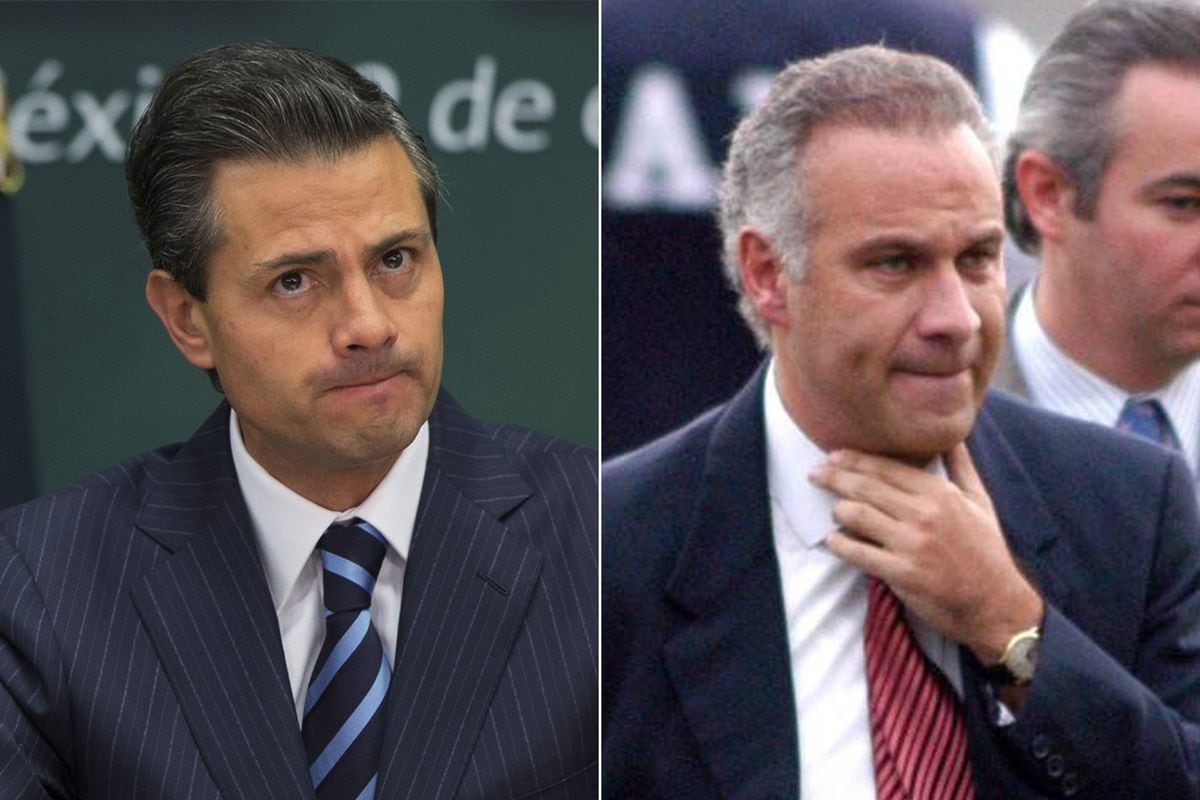The Andorran Police accuses Juan Ramón Collado, lawyer of the former Mexican president Enrique Peña Nieto (2012-2018), of the Institutional Revolutionary Party (PRI), of torpedoing the investigation for money laundering that a court of this Pyrenean principality has been instructing since 2016 where the lawyer hid 111 million dollars (109 million euros) through a network of 24 accounts.
The researchers, in a convincing confidential report from December 2021 criticize that Collado “exerted pressure” on the Government of Andorra to obtain the release of his funds.
The agents also criticize that the former president’s lawyer asked the European country’s Attorney General’s Office to investigate and block the assets of the policeman who tracked his movements in Andorra on the grounds that his reports were “biased.” “The lawyer’s lawsuit was intended to put pressure on the investigators to stop doing the work entrusted to them”, states this report framed in the investigations carried out by the Andorran magistrate Stéphanie García.
Collections of public charges
The analysis of Collado’s financial framework in the European country has revealed impressive movements. The lawyer received in the Banca Privada d’Andorra (BPA) between May and November 2010 three incomes worth 894,960 dollars (872,501 euros) from Gustavo María Saavedra Ordorika, who was general director of Industry, Environment and Natural Resources, and his wife, Mayda María de Guadalupe Guerrero Uriegas.
Saavedra Ordorika sent the money to Collado through a system that leaves no trace. He first transferred the funds to an instrumental account controlled by the BPA -bridge account- and the money was later transferred to a deposit in the name of a company linked to the lawyer, Amilou Investment CV This last procedure was channeled through an internal transfer, a channel that did not leaves a mark
Collado also resorted to the internal transfer to pay in December 2008 a total of 450,000 dollars (438,707 euros) to the lawyer Juan José Salinas Pasalagua, nephew of the former president of Mexico, Carlos Salinas de Gortari, between 1988 and 1994.
Peña Nieto’s lawyer used his Dutch company Turinga CV for payment. And he told the bank that the money from Salinas Pasalagua, who threatened to be a PRI candidate for Puebla in 2014, was the result of a commission for acting as an intermediary in the sale of a company linked to the Mexican communication group Grupo Radio Digital Siglo XXI. The Andorran Police questioned the operation. “The operation has no justification and does not allow knowing the origin of the funds,” the investigators sentenced.
The ‘off shore’ account of the nephew of former President Salinas
Salinas Pasalagua opened an account encrypted in the BPA under the code “441984 Madrigal” in April 2008. At the time of opening, he assured the bank that he was a law graduate and shareholder of two Mexican companies. Funds also entered his account from internal transfers of deposits controlled by the BPA, which, in turn, were fed by the Mexican exchange house Tiber.
A mechanic criticized by the Andorra Police. “The use of these accounts of the exchange houses and the concentration of payments allows to lose the traceability of the funds and facilitates opacity”, indicate the researchers who, in previous reports, recall that the Mexican Carlos Djemal Nehmad, one of the shareholders of the Tiber exchange house, was sentenced in 2018 by the New York Southern District Court to six years in prison for a fraud of 20 million dollars (19.5 euros).
The BPA opened the encrypted account for Salinas Pasalagua in 2008 despite the fact that he was -according to the investigations- a Politically Exposed Person (PEP), which is what public officials, relatives or former leaders are called in financial jargon who are likely to receive tainted funds. for corruption.
Shadows on money
The new inquiries sow more doubts about the legality of the 111 million dollars (109 euros) that Collado entered until 2015 in the BPA. The agents dismantle the explanations that the lawyer gave to the Andorran judge to prove his assets and question that his fortune has its origin in business and professional activity.
Collado assured the instructor that the money he deposited in the BPA came from the profits of his law firm C&A Collado y Asociados in Mexico City and the pawnshop Prenda Oro created by his father in 1999. A business with 66 branches which -as he declared to the magistrate- generated an income of 84 million dollars (82 euros) in 15 years.
The Andorran Police doubt these figures “after holding numerous telematic meetings with the Attorney General of the Republic of Mexico” and analyzing the tax returns of the investigated.
The ‘straw man’
The agents point to the Mexican lawyer Jaime Jesús Sánchez Montemayor as one of the straw men used by Collado to hide his funds in Andorra.
Collado today has more than 99 million dollars (97 euros) in Vallbanc, the entity that inherited the unsuspected assets of the BPA after the latter’s intervention in March 2015 for allegedly participating in the laundering of funds from criminal groups .
The Andorran Police insists in its latest report that Collado was able to transfer his BPA funds to Vallbanc after finding an “ally” in the PGR with whom he managed to “deceive Andorran justice.” The investigators refer to the movement that the Mexican public ministry made in 2018 by issuing an exculpatory report that justified the legality of Collado’s money in Andorra, released his funds and forced the investigation to be archived. The case was reopened after Collado was arrested in July 2019 in Mexico for organized crime and money laundering, similar crimes for which he was being investigated in the Pyrenean principality.
The agents highlight the proximity to the PRI power universe of Collado, whose client portfolio includes the former Pemex union leader, Carlos Romero Deschamps; the former governor of Quintana Roo Mario Villanueva (PRI); or Raúl Salinas de Gortari.

